Apple Plants
Apple tree are growing all over the world and are the most widespread species in the genus Malus. An apple is an edible fruit that is produced by an apple tree (Malus domestica). DNA analysis indicates that apples originated in the mountains of Kazakhstan, where the wild Malus sieversi grow in abundance. Malus sieversi are the great-grandparent of Malus domestica. As Malus domestica is known as the modern domesticated apple that still flourishes.
Distribution of Apple Plants
The tree originated in Central Asia, where it is wild ancestor, Malus seversi, is still found today. Apple plants are growing in Asia and Europe for thousands of years and brought to North America by European colonists. They occur in various parts of world in different varieties.
Apple Plants Overview
The apple is a deciduous tree that can cultivated by rootstock and trimming methods usually. Their leaves are oval in shape and alternately arranged on branches. Flowers are white with a pink tinge in them. They are produced in spring in an inflorescence that mainly consists of 4-6 flowers. The central flower in inflorescence is known as “king bloom” it can develop a larger fruit. The fruit is juicy and occurs in different skin colours including, red, yellow, green or pink etc.
Cultivars of Apple Plants
Apple plants have more than 7500 cultivars. They all vary in their shape, size and taste. Some of the cultivars of apple according to the UK national fruit collection database are Alice, Aroma, Bramley, Egremont Russet, Fuji, Gala, Golden Delicious, Granny Smith, Honeycrisp, Pacific rose, Pink Lady, Red Delicious, Sugar Bee and Yellow Transparent etc. Desirable qualities of apples depends their colourful skin, shape, sweet taste, high yield, disease resistance and high storage ability.
How to Germinate Apple Plants
- Several seeds are collected from a ripe and spotless apple. Soak the seeds in a bowl filled with cold water for one hour. Gently rub the seeds to remove leftovers from the apple cider vinegar.
- Put the seeds in a damp paper towel. Place the folded paper towel inside a 1-quart sealable plastic bag. Wet a sponge in water and remove excess moisture. Place a damp sponge inside the bag to prevent the seeds from drying out
- Store the plastic bag inside the crisper drawer of a refrigerator for 30 to 45 days to cold stratify them, which breaks their natural dormancy. Remoisten the sponge and paper towel, as needed, so the seeds never fully dry out.
- Prepare a container for each apple seed. Fill 3-inch pots with a mixture of half seed-starting compost and half perlite. Pour water into each pot until the compost and perlite mixture is saturates. Press the surface to extract the excess water.
- Poke a 1/2-inch-deep hole in the compost mixture in each pot. Place one apple seed inside each hole and cover it with compost. Firm the compost. Spread a very thin layer of sand over the compost to hold in moisture.
- Place the pots outdoors inside a ventilated cold frame or against a sheltered, south-facing wall with light afternoon shade. Avoid positioning the pots where they will be under direct sun for more than four hours daily since the compost dries out too quickly.
- Maintain light moisture in the top 2 inches of soil during the germination process. Water slowly and carefully to keep from disturbing the apple seed. Once again, do not allow the fertilizer to dry for more than a few hours before watering.
- Watch for germination one to two weeks after daytime temperatures stay reliably above 75 degrees Fahrenheit. Move the pots to a partially shaded garden bench with good air circulation once the seeds sprout.
- Dig up the apple seedlings once they grow to 2 inches tall and produce a set of mature leaves. Carefully brush off the dirt clinging to their roots. Snip off one-third the length of their roots using floral snips sanitized with rubbing alcohol.
- Repot the root-pruned apple seedlings into individual 4-inch pots filled with garden soil. Grow them under partial shade with weekly, deep watering until the following spring. Transplant them into larger containers or directly into a sunny garden bed once nighttime temperatures stay above 50 F.
How to take care of Apple Plants
Sunlight
Apple plants need full sun. This means that they should get six or more hours of direct sunlight every day. An eastern facing slope is usually a good choice, but a north facing slope may also work.
Soil
Apple trees don’t like soggy feet. That means they need to be planted in soil that will retain moisture but does drain well. The soil should be moderately rich and have a relatively neutral pH level.
Space
If apple plants comes from seed, it will grow to full size (meaning it can reach 20-30 feet/6-9 meters in height). It should make sure that it has enough space for its root system to grow.
Established Apple Plants
Apple tree will be familiar with its environment and it will have developed a regular routine of when to grow, when to produce, and when to rest. It may be regularly blooming and fruiting by this point. Since there is variation in cultivars and environments, then the results may differ. Once apple plants produced fruits, they need annual pruning. Cut away vigorously growing stems that grow upright (they normally found in the higher parts of the tree). Prune off dead, diseased, or broken branches, as well as limbs that are growing in toward the tree or that are crossing each other.
Benefits of Apple for Good Health
- Apples are incredibly good for you, and eating them will lower the risk of many major diseases, including diabetes and cancer.
- In addition, the soluble fibre content in it can promote weight loss and intestinal health.
- One medium apple is equal to 1.5 cups of fruit, which is 3/4 of the recommended 2 cups per day for fruit.
- In one study, people who ate apple slices before meals felt fuller than those who ate apple juice, apple juice or did not use apple products.
- A large study of more than 68,000 women found that those who ate the most apples had the lowest risk of asthma.
- Eating an apple each day will lower the risk of diseases about 10%.
Available Varieties :
Katy
Royal Gala.
Mondial Gala.
Gala Mist
Traku Gala.
Fiesta.
Jona Gored
Sparten
King Star
Kala Kilu.
Summerred
Redchief
Golden Delicious
Availability
Young Plants
Bare Root and in Plastic Bags






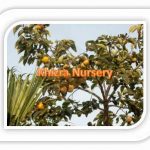



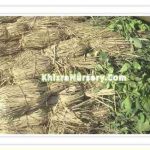

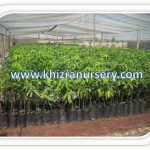

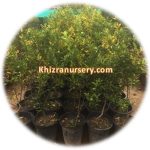
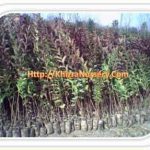
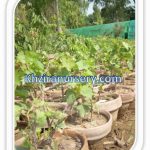
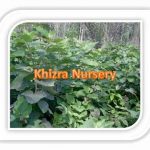
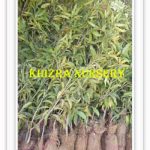

Reviews
There are no reviews yet.